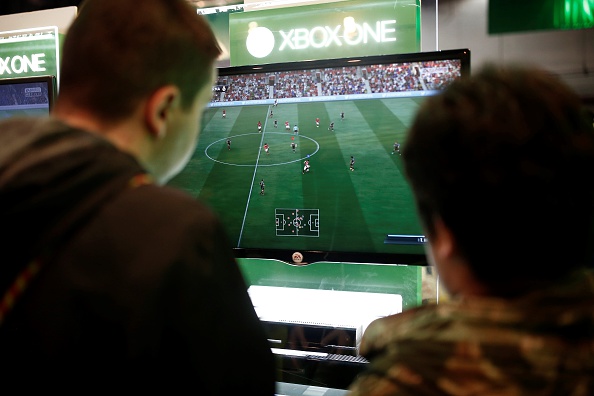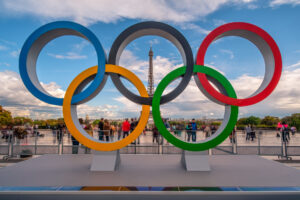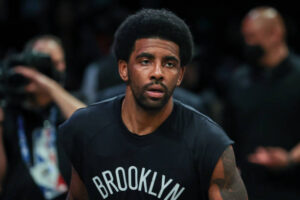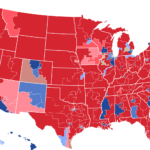The esports industry has booned, thanks largely to investments from private firms, brand advertisers and celebrities. Because of that success, brands more closely connected to the traditional sports world are seeking to diversify their portfolios by including esports.
Traditional Sports and Esports Converging for Mutual Benefits
Newzoo estimates that the revenue from esports in 2016 will be $493 million, an increase of seven percent from 2015. Newzoo further estimates that esports revenue will cross the 10-figure mark by 2019. The mass of humanity consuming esports products, such as live feeds of competitions, is growing as well. Newzoo estimates that 205 million people around the world are esports fans, and that number will rise to 335 million next year.
Part of the reason why esports has exploded is because there have been new investment opportunities. In a Fortune interview, KontrolFreek owner Ashish Mistry compares the growth of esports to the growth of NASCAR. It’s an accurate comparison.
Non-endemic Brands Invade Investment Spaces
Mistry talks about how the success of endemic brands, or those who create products used in the course of NASCAR races, eventually led to investment by other advertisers.
“The first NASCAR sponsors were car-related brands such as Goodyear, Valvoline, and others. Once those blocks were in place and money started coming in, brands like Coke and Sharpie were able to justify investing in the sport to sponsor teams and cars. I see the same thing happening with eSports.”
True to Mistry’s comparison, Coca Cola has also invested in esports. Other non-endemic brands that have put money into esports include American Express, Pizza Hut and Red Bull. The goal in all of these investments is the same; the visibility of the brands to millions of potential customers.
Like those non-endemic brands, individuals and businesses involved in traditional sports are seeking to take advantage of the esports market.
Investments in Esports by Traditional Sports Figures
Dallas Mavericks owner Mark Cuban became part of a team which invested $7 million in Unikrn last year. Unikrn is a platform that enables individuals to place bets on the outcomes of esports competitions. In January, a partnership with T-Mobile allowed ESPN to launch an online vertical dedicated to esports.
Former professional athletes who have invested in esports include Rick Fox, Shaquille O’Neal, Alex Rodriguez and Jimmy Rollins. Seattle Seahawks defensive back Richard Sherman is among the current pro athletes who have expanded their portfolios with esports. Boston Celtics forward Jonas Jerebko has purchased an esports team.
While these investments represent a crossover of sorts from traditional sports to esports, it isn’t enough to signal a true convergence. These are simply individuals or businesses seeking to expand their profitability. These investments have played a part in opening the doors of the traditional sports world to esports, however.
True Convergence of Traditional Sports and Esports
The first signal of a massive convergence of the two worlds is the organization and sponsorship of Madden NFL 17 tournaments by eight different National Football League teams. While teams and other businesses have done Madden tournaments before, it’s never been on this scale.
On Jan. 9, 2017, the eight involved teams (Buffalo Bills, Jacksonville Jaguars, Kansas City Chiefs, Minnesota Vikings, New England Patriots, Pittsburgh Steelers, San Francisco 49ers and Seattle Seahawks) will start qualifications. Qualified individuals will then compete to narrow the fields down to eight players in each city.
Those eight players will then compete in front of live audiences for prizes of $10,000 and a spot in April 2017’s Madden 17 Club Series Championship. Success there can lead to even bigger prizes.
Live streams of the eight teams’ competitions will appear on Madden NFL’s Twitch channel and on team apps and websites as well.
The tournament represents a primary serious foray into esports for the NFL. The National Basketball Association might already be ahead of the game.
Earlier this month, 2K Sports hosted a ceremony that announced the unveiling of Indiana Pacers forward Paul George as the cover athlete for NBA 2K17. The event culminated with a competition which pit the two top NBA 2K16 teams against each other for a $250,000 prize. The structure in the game exists to repeat this event on an annual basis.
The NBA’s Houston Rockets recently became the first traditional sports franchise to employ a person in its front office exclusively for esports. Sebastian Park is the Rockets’ director of esports development. His sole job is to explore how esports can help Houston grow its business. The Philadelphia 76ers became the first North American professional sports franchise to own an esports team in September.
Esports Reciprocating the Investments
While the influx of influence and money has been great for esports, all these news items represent a one-sided relationship of traditional sports as investors and platform utilizers. The relationship becomes a true convergence when both sides benefit mutually. That’s exactly what’s starting to happen.
Electronic Arts (more commonly known as EA) Sports produces the FIFA-branded video game franchise. The video game company has had a long partnership with the Premier League that it strengthened in August. Later that month, EA agreed to a sponsorship deal with perhaps the most iconic franchise in the Premier League, Manchester United.
A bigger sign of this convergence has happened since then. A technology platform created for Major League Baseball, which has since also been used by the National Hockey League and the PGA, is now being employed for esports.
BAMTech recently signed a $300 million contract to be the exclusive streaming provider of Riot Games’ League of Legends. BAMTech is owned by MLB, and its profits are split evenly by MLB’s 30 member franchises. The deal runs through 2023 and represents a massive amount of esports money flowing back to traditional sports entities.
Both esports and traditional sports figures stand to benefit from the presence of the other in their businesses. The relationship between the two industries will continue to grow, and at some point, it may be difficult to differentiate the two as separate businesses.













